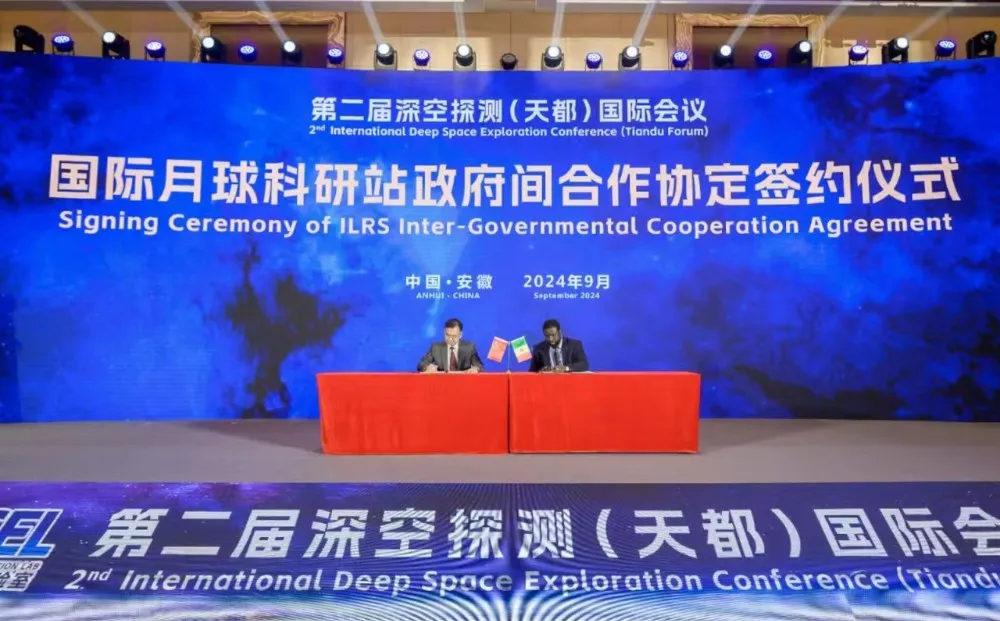On September 5, 2024, during the opening ceremony of the Second International Conference on Deep Space Exploration, Senegal took a decisive step into the realm of space.
The agreement, signed between Senegal and China, paves the way for collaboration on the International Lunar Research Station (ILRS), underscoring the growing ambitions of Senegal in the global space sector.
Maram Kaïré, Director of the Senegalese Space Studies Agency (ASES) and founder of the Senegalese Association for the Promotion of Astronomy (Aspa), played a pivotal role in coordinating this agreement alongside Li Guoping, Chief Engineer of the China National Space Administration (CNSA).
This strategic partnership was formalized on the sidelines of Senegalese President Bassirou Diomaye Faye’s official visit to Beijing for the Forum on China-Africa Cooperation (FOCAC) summit, where he met with Chinese President Xi Jinping.
Under the terms of the agreement, China commits to constructing a robotic ILRS by 2035, with five scheduled launches to establish key infrastructure such as energy and communications systems.
Looking further ahead, plans include the development of a lunar station capable of hosting humans for extended missions by 2045.
For Maram Kaïré, who also coordinated the launch of Senegal’s first nanosatellite, this agreement represents a historic opportunity for the nation.
It follows the establishment of the Senegalese Space Studies Agency and signifies Senegal’s emergence as a “spacefaring nation.”
By partnering with renowned international entities, Senegal is positioning itself as a dynamic player in the global push for lunar exploration.
Kaïré emphasized the strategic importance of this collaboration for Senegal’s economic and technological development, stating that “the space sector will serve development through products and services for the state and the population.”
The partnership with China will not only enhance Senegal’s human and technical capacities but also ensure sustainable technology transfer.
The benefits of this cooperation extend beyond the scientific realm.
Space exploration technologies, particularly those related to satellites, will play a critical role in strategic sectors such as agriculture, natural resource management, and disaster prevention.
This agreement highlights the broader impact of space exploration on improving everyday life and boosting economic resilience in Senegal.
This partnership signifies a bold step forward for Senegal, demonstrating its commitment to leveraging space technology to drive national development and strengthen its standing on the global stage.




